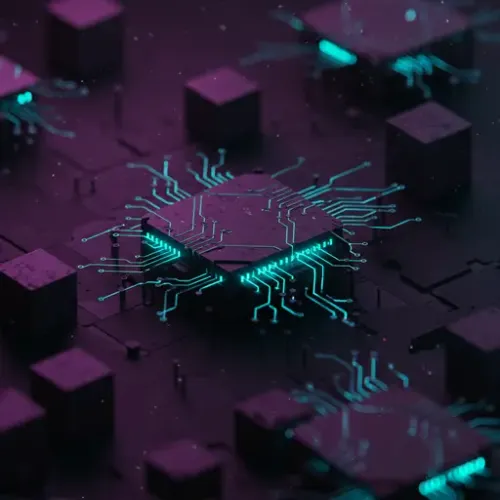How the next wave of workers will adapt as artificial intelligence reshapes jobs

The AI Report
Daily AI, ML, LLM and agents news
The rise of artificial intelligence often sparks a profound question in the minds of parents and professionals alike: What kind of jobs will be left for us, or our children, in a world increasingly powered by AI? This isn't just an abstract concern; it's a pressing reality shaping career paths and educational choices right now. Companies are already leveraging AI as a substitute for traditional hiring, transforming the landscape of the job market.
Understanding the Shifting Job Landscape
Former Labor Secretary and UC Berkeley Professor Robert Reich offers a useful framework for navigating this uncertainty, categorizing jobs into three distinct types: “making,” “thinking,” and “caring.” Understanding where your current or future role fits into this model is crucial for anticipating AI's impact.
The Automation of “Making” and “Thinking”
Reich notes that “making” jobs—those involving physical production—have largely been automated over the past few decades. Modern manufacturing facilities are predominantly run by computerized machine tools, minimizing the need for manual labor.
More recently, “thinking” jobs are now at the forefront of AI’s transformative power. This category includes professions like doctors, lawyers, accountants, and even computer engineers. AI's ability to replicate complex thinking processes means that many tasks traditionally requiring extensive professional degrees are becoming increasingly susceptible to automation. The skill set once highly valued for its specialized knowledge can now be augmented, or even replaced, by advanced algorithms.
The Enduring Value of “Caring” Jobs
The category least vulnerable to AI displacement, according to Reich, is “caring” jobs. These roles involve direct human interaction, empathy, and emotional intelligence. Think of childcare providers, eldercare specialists, nurses, and psychotherapists. The essence of these professions lies in human touch, genuine connection, and an innate capacity for empathy—qualities that AI, despite its advancements, cannot truly replicate.
While AI may simulate human interaction, it cannot offer the authentic human presence that defines these crucial services. The demand for human-centric care is expected to remain, and likely grow, as society navigates increasingly complex personal and social needs.
Navigating the Future: Adaptability and Empathy are Key
Given this evolving landscape, how can individuals, especially younger generations, best prepare? The answer lies not in predicting specific future jobs, but in cultivating foundational qualities that transcend technological shifts.
Prioritize Versatility and Continuous Learning
The most important attribute in an AI-driven world is versatility. Traditional linear career paths are becoming less common. Young people must develop the capacity to learn rapidly, adapt to new technologies, and fluidly transition between different roles and industries. Education should foster critical thinking and robust assessment skills, preparing individuals to evaluate and leverage AI, rather than simply competing with it.
Cultivate Empathy and Human Connection
For those entering the workforce, or those looking to pivot, focusing on skills that AI cannot replicate is paramount. This means honing emotional intelligence, communication, and the ability to genuinely empathize with others. Understanding and responding to human needs, providing personal care, and building authentic relationships will become increasingly valuable in a world where many analytical and routine cognitive tasks are automated.
Considering Policy and Generational Strengths
While individuals must adapt, there are also broader policy considerations. The potential for lower wages in many essential caring roles could bring concepts like universal basic income into wider discussion as a means to ensure economic stability in a human-centered economy.
Despite the challenges, there is reason for optimism. Robert Reich expresses profound faith in today's younger generations, noting their dedication to creating a better world, their willingness to make sacrifices, and their critically thoughtful, yet realistic, outlook. This generation's inherent adaptability and commitment to purpose may well be their greatest assets in leveraging AI for positive societal impact, rather than being overwhelmed by it.
Your Path Forward
The future of work isn't about humans versus machines; it's about discerning what makes us uniquely human and amplifying those strengths. As AI continues to reshape our professional lives, the ability to connect, care, and continuously adapt will not just be beneficial—it will be essential. Reflect on your own skills and passions. How can you lean into what makes you irreplaceable in a world of accelerating change?

The AI Report
Author bio: Daily AI, ML, LLM and agents news
